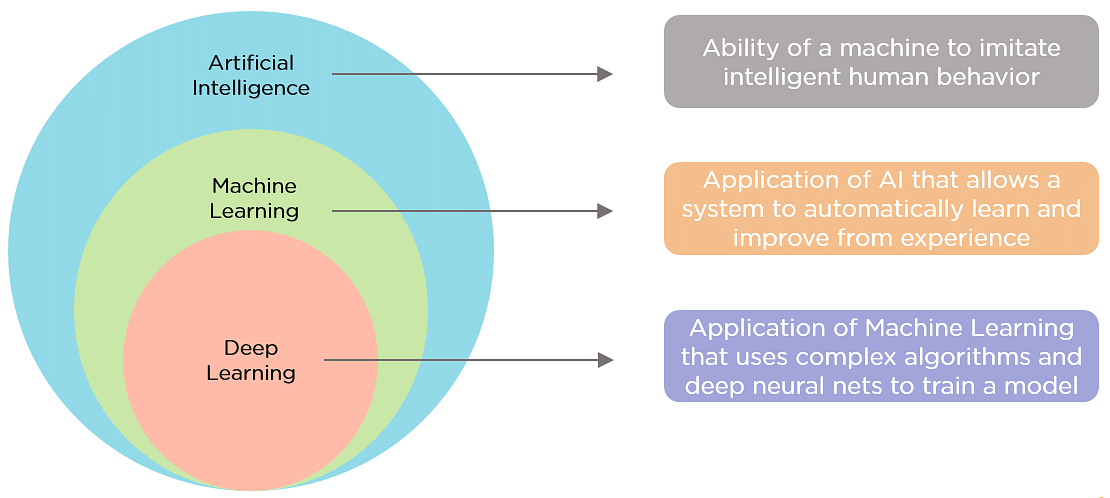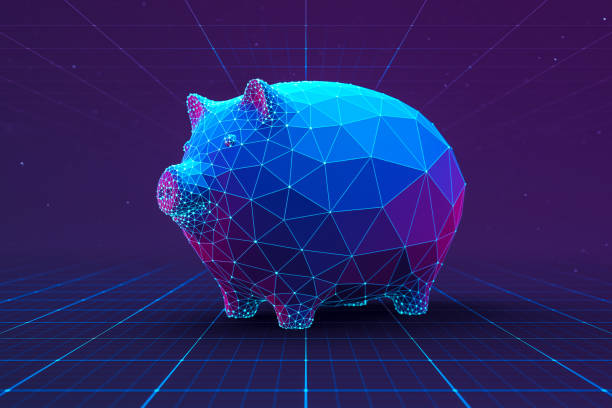There’s a soft glow in the dark. It blinks like a lighthouse beam, urging you to look. A ping echoes through the silence of your bedroom. Even as your eyelids droop with exhaustion, you reach out, drawn as though by magnetic force. Your fingers curl around cool metal and glass. The world floods back in—messages, images, news, likes. You sigh, half comforted, half weary.
This is the love affair of the modern age: humans and their gadgets.
We are tethered to screens and circuits, unable to resist the seductive pulse of notifications. Our phones, tablets, laptops, smartwatches, and digital assistants form a constellation around us, each device glittering with promise. They soothe us, entertain us, connect us—and sometimes drive us to the brink of mental collapse.
We know our gadgets stress us out. Studies scream warnings about anxiety, sleep loss, distraction, and depression linked to excessive tech use. And yet we return to them, over and over, as though seeking comfort in a familiar embrace.
Why do we cling to the very things that exhaust us? To answer this, we must delve into the deep architecture of the human heart and mind—a terrain littered with neurons, memories, dopamine bursts, and old evolutionary ghosts. We must look not only at the gadgets themselves, but at the longing within us that fuels their power.
From Fire to Facebook: The Story of Human Tools
The tale of technology is the tale of humanity itself. From the moment ancient hands first struck flint against stone, sending a bright spark into the darkness, we have been toolmakers. Tools gave us warmth, shelter, food, power, and the means to survive. But they also gave us something subtler: identity.
Fire transformed not only our bodies but our social lives. Around the flickering glow, we gathered, sharing stories, secrets, songs. Fire became more than heat. It became community.
So it is with gadgets today. The smartphone is our modern fire. It keeps us connected, informed, entertained. It promises us belonging in a world that often feels too vast to comprehend. Our devices are not simply tools; they are talismans of modern life, carrying fragments of who we are—photos, texts, playlists, love letters, memes, calendars, voice notes, journal entries, bank accounts.
In our gadgets, we hold a tiny archive of our entire lives. No wonder we feel so naked without them.
The Chemistry of Desire
If you want to understand the intoxicating power of gadgets, look no further than the brain. Technology hijacks ancient circuits designed to keep us alive. Every ping, buzz, or red badge triggers a surge of dopamine—a chemical messenger linked to desire, motivation, and pleasure.
Dopamine isn’t the “pleasure chemical” as it’s sometimes called; it’s the molecule of anticipation. It fuels the delicious tension between wanting and getting. The human brain evolved to crave novelty and information because, in a prehistoric world, that drive could mean the difference between life and death. Spotting a new food source or detecting a change in the environment was crucial for survival.
Today, we no longer need to forage for berries or watch for predators. Instead, we forage for likes, comments, and updates. Our brains light up at each new piece of digital information. Each swipe, each scroll, is a roll of the dice. Maybe this time, we’ll see something funny, inspiring, validating, or shocking.
The very architecture of apps is designed to exploit this dopamine system. Infinite scroll keeps us searching. Notifications pull our attention back, again and again. We are rats pressing a lever, hoping for the next pellet of digital reward.
Yet even as we indulge, we know we’re not always happier for it. Because dopamine is only half the story.
Comfort in the Glow
Beneath our craving for novelty lies a deeper human need: the need for comfort.
Our gadgets offer sanctuary. When the world outside is chaotic, cruel, or uncertain, a glowing screen can feel like a cocoon. A phone is small enough to clutch like a talisman, close enough to whisper secrets into, and powerful enough to summon entire worlds.
Lonely? Send a message. Bored? Open TikTok. Anxious? Listen to music or a guided meditation app. Curious? Type your question into Google.
There’s no shame in the comfort we seek. Life can be hard, and sometimes we need gentle distractions to get through the day. Our gadgets don’t just stress us out; they also soothe us, providing the illusion of control over a messy world.
And yet, this same comfort can become a cage.
The Paradox of Connection
Social media promised us connection—a dazzling tapestry of friendships, communities, shared laughter. And it delivered…sort of. We are more connected than any humans in history. A single device can link us to childhood friends, family members across continents, celebrities, strangers who share our niche hobbies.
But connection has a shadow. As psychologist Sherry Turkle writes, we are “alone together.” Our gadgets give us the illusion of intimacy, even as they keep real closeness at bay. We type LOL instead of laughing out loud. We double-tap a photo instead of calling to say, “I’m thinking of you.”
Deep down, many of us feel lonelier than ever.
The paradox cuts deeper still. Gadgets create social pressure. We compare our lives to the polished highlight reels of others. Everyone seems happier, prettier, more successful. We see friends vacationing in Bali, colleagues landing promotions, strangers sculpting perfect bodies at the gym. We wonder: Why not me?
This constant comparison corrodes self-esteem. Our gadgets bring us into contact with more people than ever, but sometimes they also make us feel unseen.
The Tyranny of Availability
Once, leaving the office meant leaving work behind. Once, you could go home, close the door, and sink into private life.
No longer.
Our gadgets keep us on call. The same devices that connect us to friends and family also tether us to bosses, clients, teachers, and colleagues. Emails arrive at midnight. Slack pings interrupt dinner. Even vacations feel permeable, pierced by the glow of incoming messages.
The modern worker is expected to be endlessly reachable—a notion that would have horrified our ancestors, who prized private time. The result is a rising tide of stress. We’re burning out, but we can’t disconnect, because our gadgets make us feel guilty for stepping away.
We love our gadgets, but sometimes we wish they’d leave us alone.
Memory in Silicon
Our gadgets are memory vaults. They remember birthdays, passwords, directions, appointments, faces. They store photos of moments we barely recall. They catalog our conversations, purchases, songs, secrets.
This outsourcing of memory can feel liberating. We don’t have to remember phone numbers or navigate streets with paper maps. We can summon any fact in seconds. Our minds are freed from mundane details, opening space for higher thought.
Yet there’s a cost. We sometimes feel lost without our devices, unable to navigate even familiar terrain. We trust our phones more than our own memories. Studies suggest that our brains remember less because we assume our devices will remember for us.
And in the process, we lose part of what makes human memory beautiful—the soft blur of nostalgia, the selective editing of time. Our gadgets capture everything with ruthless fidelity, even moments we’d rather forget.
When Our Gadgets Know Us Better Than We Know Ourselves
We pour ourselves into our gadgets, and they pour back data about who we are.
Our phones know our habits, tastes, desires. Algorithms predict what we’ll buy, whom we’ll date, what we’ll watch. Streaming services auto-suggest shows we never knew we’d love. Apps map our steps, chart our sleep, log our heart rate. Even our moods are dissected in the glow of a screen.
It’s eerie, how intimately our gadgets know us. Sometimes they seem to know us better than we know ourselves. The recommendation engine whispers: “You might like this.” And often, we do.
But there’s a subtle trade-off. In surrendering our data, we surrender parts of our autonomy. We risk becoming creatures led by algorithms, our choices nudged by invisible hands.
We love our gadgets because they seem to know us. But the question looms: who else is listening?
The Joy of Creation
For all the stress our gadgets bring, they also empower us as creators. Never in history have ordinary people held so many tools for self-expression. Smartphones let us record music, shoot videos, write stories, edit photos, design graphics. Social media gives us audiences of thousands—or millions.
Gadgets turn us into artists, journalists, comedians, activists, philosophers. We make memes, vlogs, podcasts, TikToks. We share poetry, artwork, ideas. We document injustices and mobilize protests. We reach strangers who become friends, collaborators, supporters.
This creative revolution is breathtaking. Even the smallest voice can find an echo. For all the darkness of the digital age, our gadgets help us carve beauty from chaos.
Our Digital Comfort Objects
In times of stress, humans cling to comfort objects. Children clutch blankets or stuffed animals. Adults may stroke a piece of jewelry, fiddle with a pen, hold a cup of coffee.
Our gadgets have become our digital comfort objects. We grasp our phones like security blankets. Their weight and texture become familiar, soothing. The mere act of unlocking a screen can lower anxiety—a ritual as primal as lighting a fire.
Sometimes, even when we have nothing to check, we unlock our devices anyway. We crave their glow, their promise of distraction. A study once showed people preferred mild electric shocks to being left alone with their thoughts. Our gadgets spare us that solitude.
But comfort can become compulsion. The soft glow can become a harsh glare. And the line between solace and addiction grows perilously thin.
Digital Guilt and the Myth of Productivity
We live in an age obsessed with productivity. Our gadgets promise to help us “do more,” “work smarter,” “optimize.” We download apps for note-taking, goal-tracking, time management. We read articles about maximizing every minute.
But these same gadgets lure us into time sinks. We lose hours scrolling, clicking, watching. We feel guilty afterward, berating ourselves for wasting time. We vow to “do better,” only to fall again into the digital whirlpool.
Our gadgets both feed and exploit our guilt. They offer endless possibilities for self-improvement—and endless opportunities to fall short.
The truth is, human beings were not meant to be endlessly productive. We are creatures of rhythm, of rest and effort, of play and purpose. Our gadgets tempt us to sprint without pausing, forgetting that even machines need to cool down.
Hope in the Glow
Despite all our struggles with technology, we should not forget the extraordinary good it brings. Our gadgets connect the lonely, educate the curious, empower the marginalized. They enable telemedicine, language learning, global collaboration. They save lives in emergencies, illuminate injustices, spark revolutions.
We love our gadgets because they remind us of possibility. In their glow, we glimpse a better world.
But to love our gadgets wisely, we must learn to hold them at a distance. We must become masters of our attention, rather than slaves to it. We must remember that we are more than data, more than clicks, more than screens.
The Future of Our Affair
As technology evolves, our relationship with gadgets will deepen in ways we can scarcely imagine. Artificial intelligence will become more seamless. Virtual reality will blur the line between physical and digital. Brain-computer interfaces may one day let us think our messages rather than type them.
Will we become cyborgs, merging our consciousness with machines? Will we find new forms of connection that heal the loneliness in our souls? Or will we become more fractured, more distracted, more estranged from ourselves?
The answer lies not in the gadgets, but in us. Technology amplifies human nature. It reflects both our light and our shadows. It can be a tool for freedom or a trap of dependency.
To love our gadgets well, we must love ourselves more. We must protect the fragile spaces of stillness, silence, and real human presence. We must remember that the glow of a screen is not the glow of the sun, and that the most important connections happen not through Wi-Fi, but through breath, touch, and the warmth of human eyes.
Why We Keep Loving Them Anyway
So why do we keep loving our gadgets, even when they stress us out?
Because they are mirrors of our deepest longings. We want connection, beauty, novelty, knowledge, validation, entertainment, purpose. We want to feel less alone. We want to feel alive.
Our gadgets offer all this—and sometimes, they deliver. They make us laugh, teach us new things, bring distant loved ones close. They remind us that we are part of a vast human story unfolding in real time.
Yes, they drain us, distract us, exhaust us. But they also thrill us, comfort us, and let us glimpse the infinite. The challenge of our era is not to reject our gadgets outright, but to use them wisely, so they serve the best of who we are.
Because in the end, our love affair with technology is simply another chapter in the grand, messy story of being human—a story of yearning, wonder, folly, and hope.
And that story is far from over.






